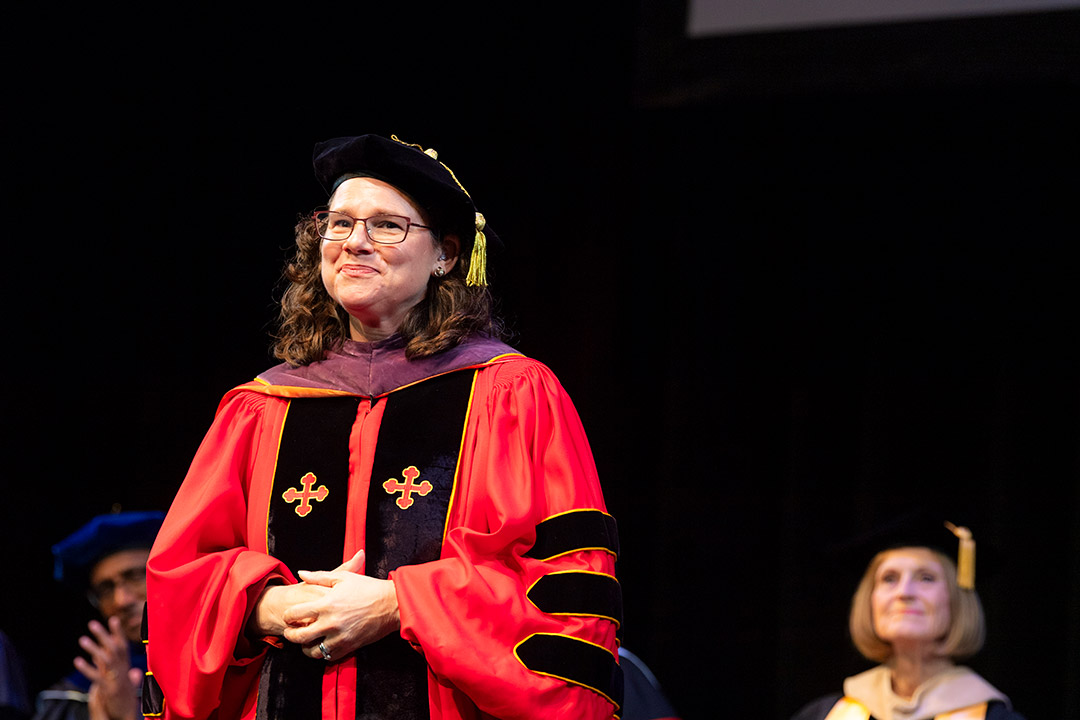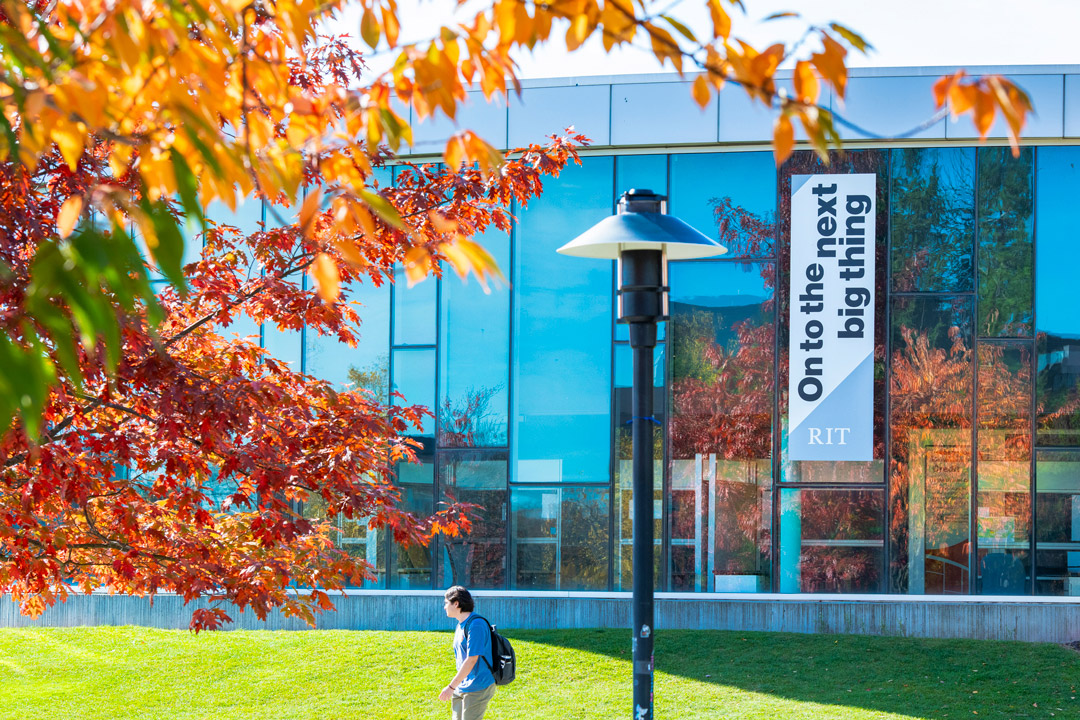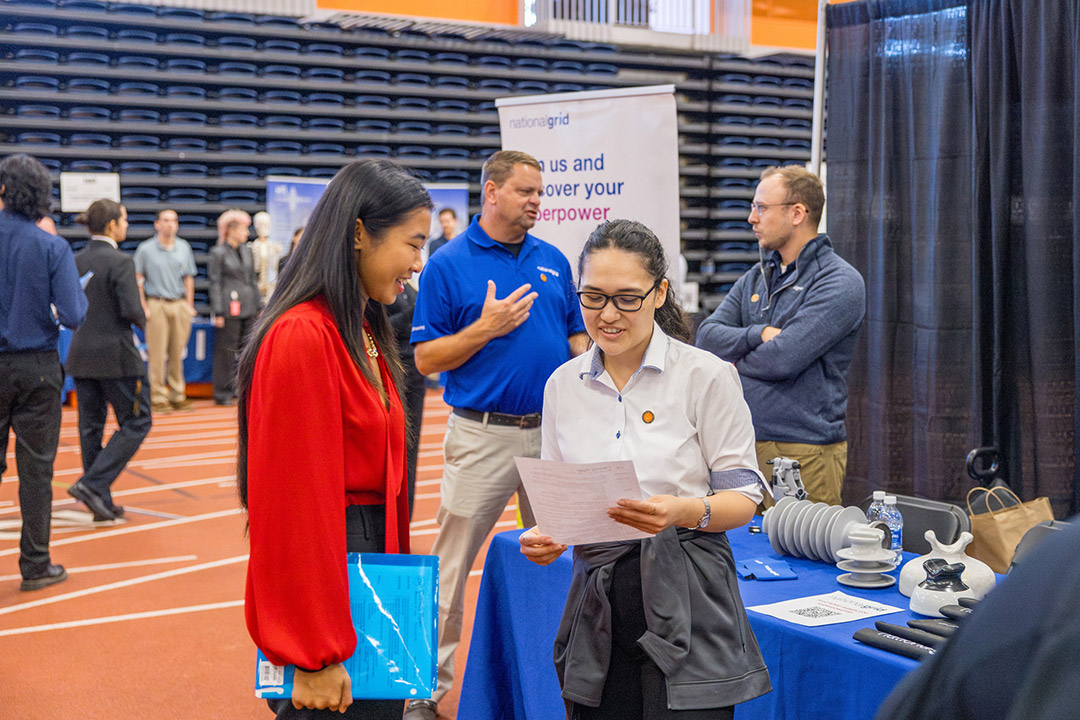Scientist, researcher will focus on supporting the student community, driving innovation, and helping define the future of Deaf education
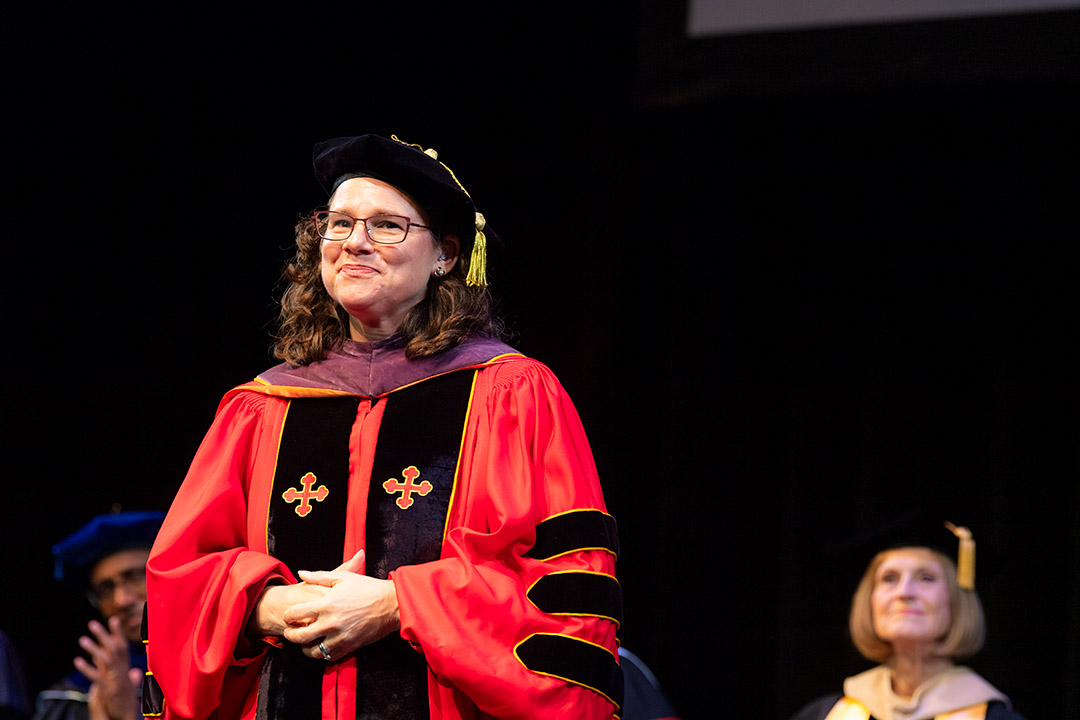
Makayla Smith
Caroline Solomon was installed as the first woman president of RIT's National Technical Institute for the Deaf on Oct. 10. During her speech, she said that her appointment is not only humbling, but historic. “It’s a reminder that leadership does not have one voice or one story,” she said.
Rethinking how to support students, leading and driving innovation, and investing in transformative teaching and impactful research are some of the focus areas of Caroline Solomon, who was installed as the first woman president of RIT’s National Technical Institute for the Deaf on Oct. 10.
In her inauguration speech, Solomon, who also serves as vice president of RIT, encouraged the campus community to help “prepare students for a world that needs their voices, their leadership, their moral compasses, their ability to be agile and adapt and innovate.”
Reflecting on her career and her path to leadership, Solomon talked about what her appointment means to the community.
“It’s about every student who wonders if they can lead in spaces where they have never seen themselves reflected,” she said. “Your voice—whether it’s signed, spoken, written, or felt—matters deeply. Your perspective is needed. And your future is limitless.”
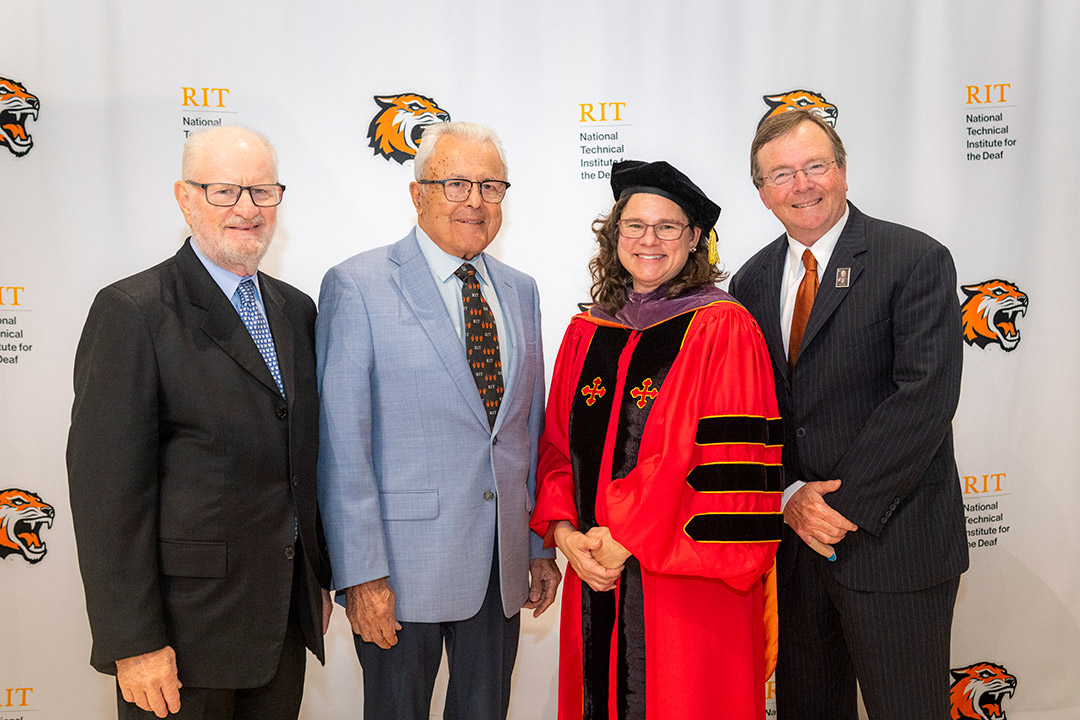
Matthew Sluka/RIT
Caroline Solomon is joined by past leaders of RIT’s National Technical Institute for the Deaf, from left to right, T. Alan Hurwitz, Robert Davila, and Gerry Buckley.
Speakers included Bill Sanders, RIT president; Susan Holliday, vice chair, RIT Board of Trustees; Prabu David, RIT provost and senior vice president for Academic Affairs; Larry Buckley, senior associate dean, College of Science; Patricia Glibert, professor at the University of Maryland Center for Environmental Science’s Horn Point Laboratory; and Emma Kane, a fourth-year public policy and business administration student at RIT.
“Dr. Solomon’s focus on research and teaching the STEM disciplines and her dedication to sharing her enthusiasm and excitement for the sciences with her students are what drives her and has made her such a success in classrooms, labs, on research vessels, and in remote regions throughout the world,” said Sanders. “I couldn’t be more thrilled to welcome you to RIT and to support you in your leadership of NTID.”
The keynote address was delivered by Carol Padden, the Sanford I. Berman Endowed Chair, Distinguished Professor, and dean of the School of Social Sciences at the University of California San Diego. Padden, one of Solomon’s early mentors, talked about first impressions and what it takes to lead an institution like NTID.
“I had the distinct impression that you were a person of quality and integrity,” said Padden of Solomon. “You’ve charted a solid path forward from these early years to this crowning achievement. The admiration comes from how much we identify with you, as a woman, as a deaf woman, a scientist, and a humane leader, all in one. Our country needs committed leaders who will work alongside others to plan a future for our universities in this crucial time in American history.”
Solomon, who began her tenure at NTID on Aug. 18, joined the faculty of Gallaudet University as a biology instructor in 2000 and rose to the rank of professor in 2011. She received Gallaudet’s Distinguished Faculty Award in 2013 and was recognized by the Association for the Sciences of Limnology and Oceanography with its Ramon Margalef Award for Excellence in Education in 2017. She was appointed the dean of faculty in 2024.
A renowned scientist and researcher, Solomon has devoted herself to encouraging and nurturing deaf and hard-of-hearing students in STEM fields and has presented on her research at national and international conferences. She is also a past participant in the Deaflympics as a swimmer and was inducted into the Deaflympics Hall of Fame in 2020.
During her inauguration speech, Solomon also looked to the future of NTID.
“NTID must be more that a place where knowledge is transferred,” she added. “It must be a space where students grow as a whole person and learn to embrace civil discourse. We will deepen our partnerships beyond the walls of this campus because our impact must extend into our communities, both here and around the world.”



